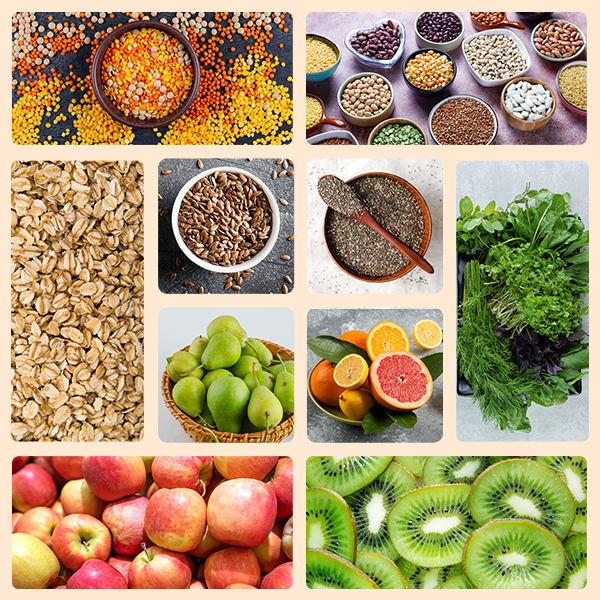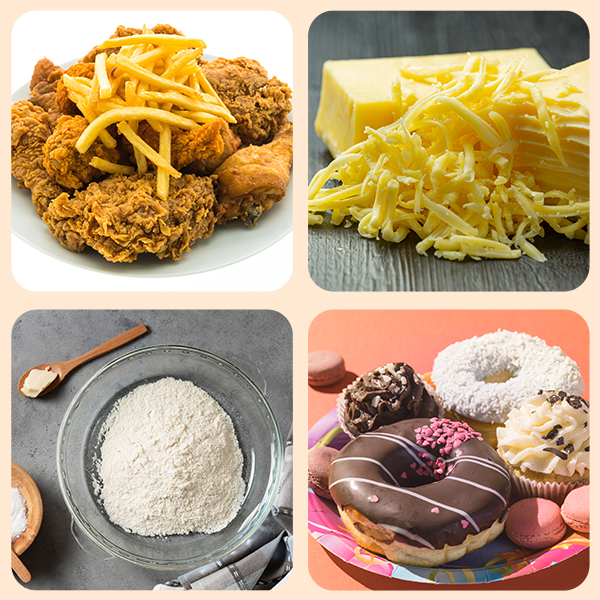Constipation In Mature Adults: Foods You Should Eat and Avoid
Blogs11 Jun 2025
IN THIS ARTICLE
In a study done on Indian population in 2018, it was found that 22% of Indian adults suffer from constipation. This trouble with the passage of stools can often lead to feeling unsatisfied post-bowel movement, pain, discomfort, lower back pain and more.
Constipation can be a challenging issue to grapple with, as it can create discomfort and disrupt daily routines. The causes can be multifaceted, ranging from low fibre intake, inadequate hydration, and lack of physical activity to certain medications. Almost everyone can face constipation once in a while, but science has found that older people are more likely to face this issue than younger people. About one-third of older people tend to have occasional constipation-like symptoms often. However, for mild cases of constipation, dietary modifications may help manage it effectively. In this article, we’ll take you through all the best foods for constipation and which foods to avoid when constipated. Moreover, we’ll also discuss some important tips for constipation relief, so let’s get into it!
High-fibre Foods for Constipation
1. Oats
Oats are packed with fibre, particularly a type called beta-glucan. This type of fibre can have positive effects on the gut microbiome and prevent issues like constipation and diarrhoea.
2. Flaxseeds
Flaxseed is an oil-based seed that contains many bioactive components like linoleic acid, soluble and insoluble fibre etc. It also has lubricating properties that can soften stool and improve bowel movement and frequency. That’s why this functional food can be a safe way of managing constipation at home, naturally.
3. Chia Seeds
Have you ever mixed a spoonful of chia seeds with water? Within minutes it puffs up and forms a gelatinous coating around the seed which can have beneficial effects such as softening the stool and making bowel movements easier. Since it’s great at absorbing an immense amount of water, chia seeds can also help add bulk to stools.
4. Beans and Lentils
These legumes are rich in soluble and insoluble fibres which can help ease constipation. They can boost gut health and prevent several gut-related issues from occurring as well.
5. Green Leafy Vegetables
Leafy greens are sources of insoluble fibre and several essential micronutrients , making them good for constipation and overall health. An example is Spinach. It’s a wonderful vegetable that contains a host of important nutrients and may aid digestion, decrease food transit time in the intestines and most importantly, increase, soften and quicken the passing of stool.
6. Whole Grains
Whole grains like brown rice, barley and quinoa are good sources of dietary fibre, which adds bulk to your stool and helps it move through your digestive system more easily.
7. Pears
Pears are high in fibre making them one of the top fruits for constipation. They also contain fructose and sorbitol which are associated with natural laxative properties, thus promoting bowel movements.
8. Apples
Apples are often grouped with pears because they come from the same family of fruits and have similar nutritional profiles. Apples are one of the best fruits for constipation. They are also sources of dietary fibre, which adds bulk to your stool and aids in its movement through the digestive system. They also contain a specific type of soluble fibre called pectin, known for its laxative effect.
9. Kiwi
Kiwi contains an enzyme called Actinidine, which can stimulate upper gastrointestinal tract motility. Clinical studies have found that green kiwifruit can increase stool frequency, and volume along with softness and ease of defecation.
10. Citrus Fruits
Citrus fruits like oranges, grapefruits, limes etc., are sources of fibre and contain a flavonol called Naringenin. Some initial research has found that this natural flavonoid has anti-inflammatory properties and may even be used for managing constipation.
Incorporating these foods are natural laxatives and adding them to your diet can provide significant relief from constipation and promote a healthy digestive system.
Foods to Avoid When Constipated
Fried Foods:
Foods such as fried chicken, fries, samosas or pakoras, that have been deep-fried in oil, can contribute to constipation. With a high fat and low fibre content, these foods could slow down the digestive process, leading to harder stools that are difficult or painful to pass.
Sugary Foods:
Desserts like cakes, cookies, and candies have a high sugar content but little to no fibre and are associated with a high constipation score. Even products with refined sugar can be unhealthy to consume.
Refined Flour:
Items with refined flour can lack in fibre, which may result in slower digestion and constipation.
High-fat dairy:
Products like butter and cheese that are high in fats may be a cause of constipation, so if you’re constipated, try to minimise your use of them.
By being mindful of these foods that make you constipated, you can make smarter dietary choices and stay healthy.
Tips to Manage Constipation
- Having a high-fibre diet is one of the best ways to manage constipation.
- Always ensure that you are adequately hydrated to keep your stools soft.
- Exercising regularly can stimulate the lower body and the digestive system, making it easier to pass stool.
- However, if constipation persists, it's important to talk to your physician for proper medical advice.
Conclusion
We understand that having functional or chronic constipation can be uncomfortable at best and outright painful at worst. Being one of the most common digestive issues, it’s helpful to know what you can eat to get some relief and what you should avoid if you don’t want to make matters worse. As a rule, when dealing with constipation, pick foods to fight constipation such as foods high in fibre and low in fats. Several important fruits and vegetables are great for constipation whereas sugary, fried foods are the worst for this digestive problem. We hope this article helped you find some clarity on creating a diet for constipation relief and other constipation management tips . For more detailed information and guidance, it’s best to visit your physician and take their professional advice.
If you want to gain more knowledge on topics related to health, nutrition and ageing, you’re at the right place. We at Right Shift are always creating new informational articles to help you understand and prioritise your health in your midlife. We also offer a variety of free meal plans based on your preferences and health goals. For boosting your digestive health, you choose our plan on digestive health and make changes right away!
Other Popular Blogs
Tips to Tackle Constipation Issues | Symptoms of Unhealthy Gut | Habits to Improve Digestion and Gut Health | Yoga for Digestion | Fiber-Rich Recipes |
FAQs
Foods rich in fibre such as fruits, oats, whole grains, flax seeds, green leafy vegetables, chia seeds, apples, pears are good for constipation.
Yes, oats may be good for constipation as they contain dietary fibre which can help in bowel movement, increase stool bulk and relieve constipation.
Plenty of water, herbal teas etc., can aid in relieving constipation.
1. Constipation: Causes and Prevention Tips, Johns Hopkins Medicine
2. The pathophysiology of chronic constipation, PMC
3. Concerned About Constipation?,NIH
4. Chronic Constipation in the Elderly Patient, PMC
5. Concerned About Constipation? NIH
6. Symptoms & Causes of Constipation, NIH
7. Foods for Constipation, Johns Hopkins Medicine






